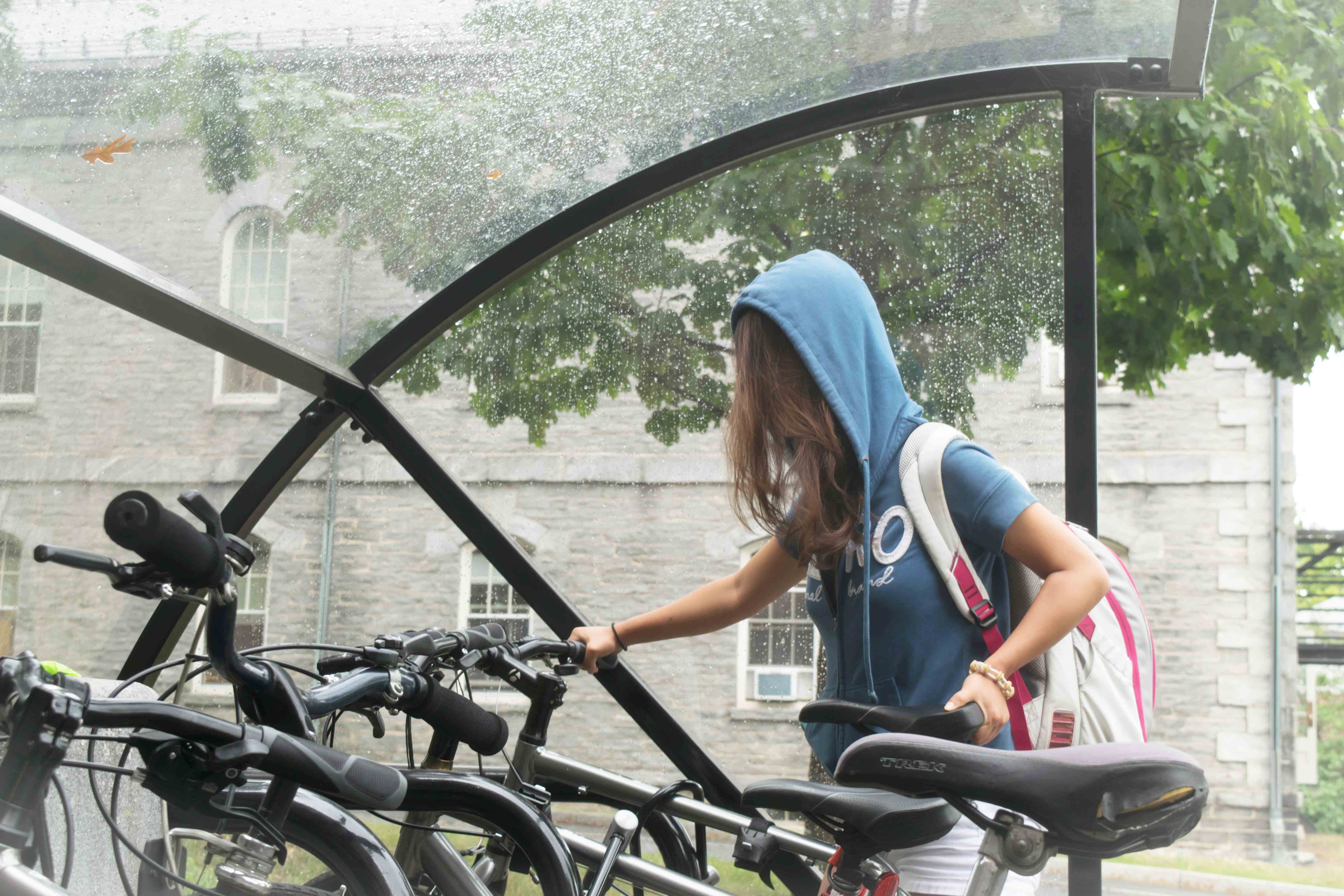

Since its launch last Monday, Sept. 12., nearly forty students have checked out bicycles through the Amherst College Bike Share program, a largely student-run organization that allows Amherst College students to use bicycles for transportation at no cost. The bicycles can be used roughly within the same boundaries as those of the Pioneer Valley Transit Authority.
Over a hundred students have obtained their ID cards for the program after signing and submitting a waiver. Users can check out an available bicycle until 6 p.m the day after the check-out from the Campus Center Manager in Keefe Campus Center. The program will remain open throughout the fall, and bikes will be available until the weather no longer permits, or until Thanksgiving at the latest. The bikes will then be stored until the spring.
“Bikes [provide] the opportunity for our students to experience nature with our beautiful bike paths without needing their own bikes,” Director of Sustainability and bike share program facilitator Laura Draucker said. “While that isn’t cutting greenhouse gases, it’s important to the overall sustainability of the students here.”
The program received funding from the Association of Amherst Students and the Office of Environmental Sustainability primarily to purchase the bikes and bike rack. Student managers and mechanics manage the bicycles and monitor their use. According to Harry Shapiro ’18, the lead bike share manager, some of the bicycles are still in need of minor maintenance.
Shapiro described this program as more of a “quality of life enhancer” rather than a green project.
“I would like for everyone to ride a bike [for] going to UMass, shopping and [to] Puffer’s Pond,” Shapiro said. “I want more people to ride bikes. It’s a service for students and under that umbrella, it’s an alternative transportation.”
The idea of and initial planning for a bike share program began last October with Draucker, Alisa Bajramovic ’18, Becky Danning ’16 and John Michael ’19, but Five College liability concerns about the proposed program slowed their progress. By the time they revisited their plans, Hampshire College had already set a precedent by revamping its own bike share program, making it easier for Amherst College Bike Share to gain approval from the consortium.
Michael spearheaded a month-long pilot program during the summer to assess any potential problems and to gauge student interest. Over that period, students in the program used the bike share program 67 total times to check out bikes, and incidents including late returns and losing the keys to the lock occurred twice.
“I don’t think we had any negative feedback,” Michael said. “The consensus was that it was nice to have the bike share and not purchase a bike. We learned a lot about how it would work on campus and reassessed for the fall.”
According to Michael, the largest changes made between the end of the summer pilot program and the official launch were intended to accommodate the anticipated increase in users.
Shapiro said that he hopes to take a proactive approach to damaged, lost or late bikes. Bike share managers check the bicycle rack every evening in order to assess potential lateness or damages.
According to Draucker, there are plans among various bike share programs in Amherst, Northampton, Holyoke and Springfield to create a regional bike share program in the coming years, providing residents in the area with an alternative way to travel between communities.
“We were talking about whether or not we wanted to pursue a bike share even with [plans for] the regional bike share,” Draucker said. “However, we needed student data on whether students will use the bike share. In the future, we might discontinue our bike share program if students prefer the regional one or run both bike share programs if they are used for different reasons.”
As of now, the program has 10 bicycles for the fall. However, if demand for the bikes increases, Shapiro anticipates that the program may add 20 to 40 more bicycles. For future expansions, he said that he also hopes to create an automated system using AC Dollars instead of cash to assess late fees and to provide bicycle-related programming.